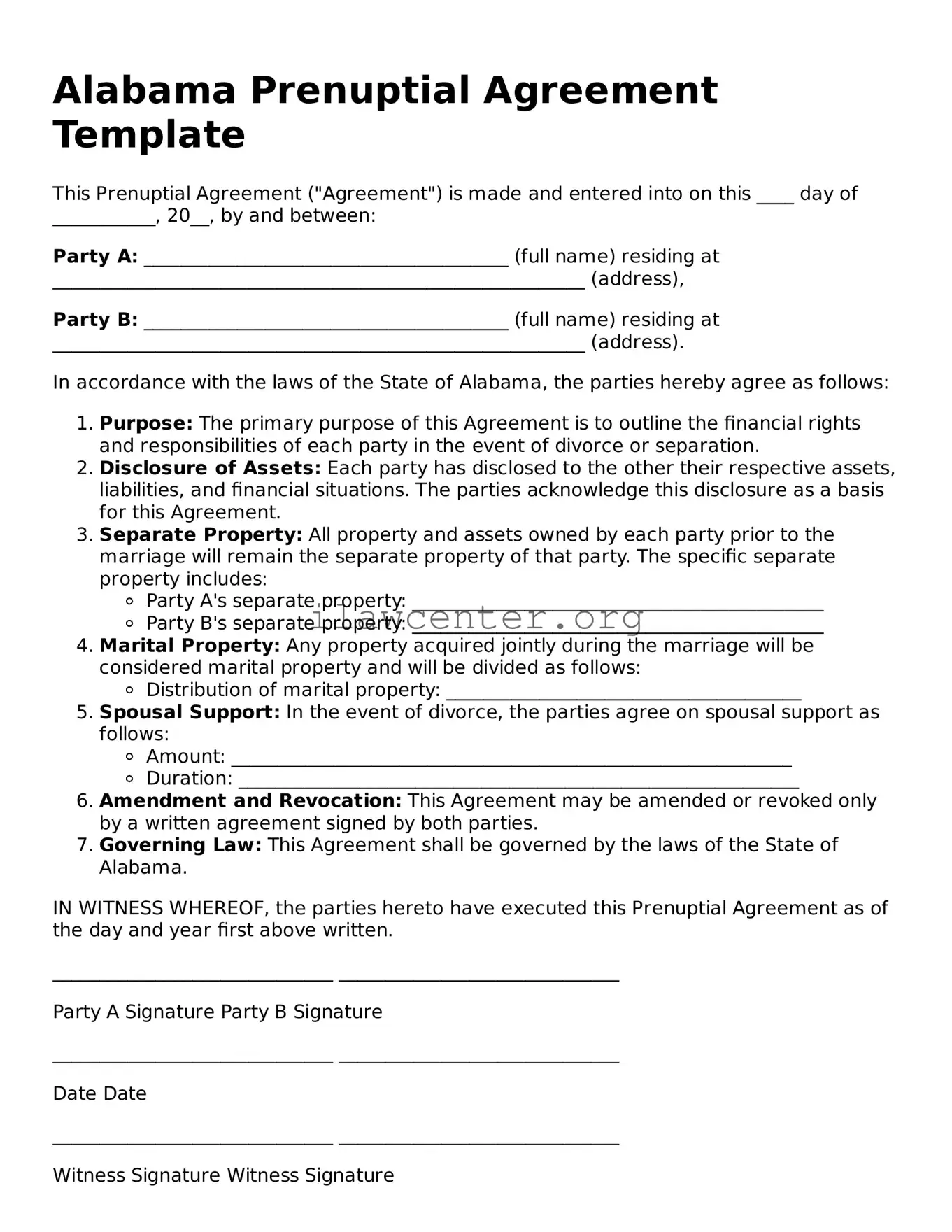Instructions on Utilizing Alabama Prenuptial Agreement
Preparing a prenuptial agreement in Alabama requires careful attention to detail. After gathering all necessary information and deciding on the specific terms that suit both parties, filling out the form becomes a structured process. Here are the steps to guide you through it.
- Start with Basic Information: Fill in your full name and your partner's full name at the top of the form. Be clear and accurate.
- State Your Intent: Clearly express your intention to enter into a prenuptial agreement. A statement of intent helps establish the purpose.
- Detail Assets and Liabilities: List all property, assets, and debts of each party. This can include bank accounts, real estate, vehicles, investments, and outstanding loans.
- Specify Property Rights: Define how the property will be shared or distributed during the marriage and in the event of divorce or separation.
- Provide for Spousal Support: Discuss and document any agreements regarding alimony or spousal support. Make sure both parties agree to the terms.
- Include a Disclosure Section: Confirm that both parties have shared complete and truthful information regarding their finances. This helps ensure transparency.
- Signature Lines: Leave spaces for both parties to sign and date the agreement. Ensure that the signatures are witnessed, if required by your state.
- Consult an Attorney: Before finalizing, it’s wise to review the finished document with an attorney specializing in family law to ensure it meets all legal requirements.
